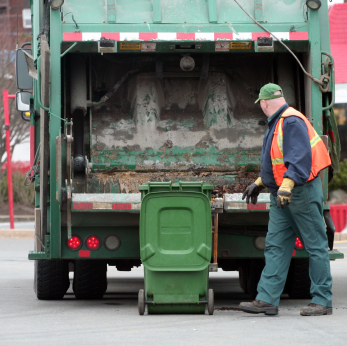Meet the Pillars of the Clean Economy
Yep, your friendly MBTA bus driver and local garbage collector represent the two largest sectors of the “clean economy” according to a new report.
The report, by the Metropolitan Policy Program at the prestigious Brookings Institution, totals up the employment of the “clean economy” sector. And, to be fair, is pretty upfront about its methodology and reasoning.
What concerns me is that the incredibly broad contours of the ‘clean economy’ (which even includes the HVAC tech who allows me to keep my office at a cool, energy-sucking 62 degrees in summertime) are quickly conflated with ‘clean energy’, ‘cleantech’, ‘green economy’ and other buzzwords. Then the data about the size of the sector enters the policy discussion without an understanding of the underlying facts.
If you breakdown the largest constituents of the clean economy, a rosy image of good-for-the-environment technological progress quickly evaporates. The top employer segment in the clean economy is “Conservation”, which the report explains is mainly federal workers in departments like Fish & Wildlife and National Parks. Along with public transit and waste management, these three categories account for over a million jobs out of the 2.7 million total.
That’s a far cry from the image of renewable energy R&D that proponents of cleantech typically present.
And the expansive view of the sector suggests odd policy outcomes. Should we be increasing headcount at the MBTA to grow the local ‘clean economy’? Hire more garbage collectors? Install more air conditioning?
The report puts Massachusetts clean economy employment at 63,523 jobs. A previous clean economy study put the total at 26,678 in 2007 (using a different methodology).
Much more restrictive analyses (more focused on cleantech) from the same period found sector employment to be either 10 – 15,000 and 14,400 respectively.
Don’t mistake my skepticism about the clean economy methodology for opposition to renewable energy. It’s an important area and one that Massachusetts can potentially lead in. And its strategic importance shouldn’t be understated.
But the use of buzzwords in the public discourse is overwhelming the data (as evidence, check out the Globe’s endorsement of Patrick for Governor – ‘clean energy’ shows up 8 times in an 1100 word piece). Real green technology/renewable energy work (as opposed to relabeled service industries) are not a large employer in this area and can’t possible scale up to create the number of jobs we need. Nurture them, support them, but don’t count on them for large numbers of jobs.
Crossposted at Boston Daily.



